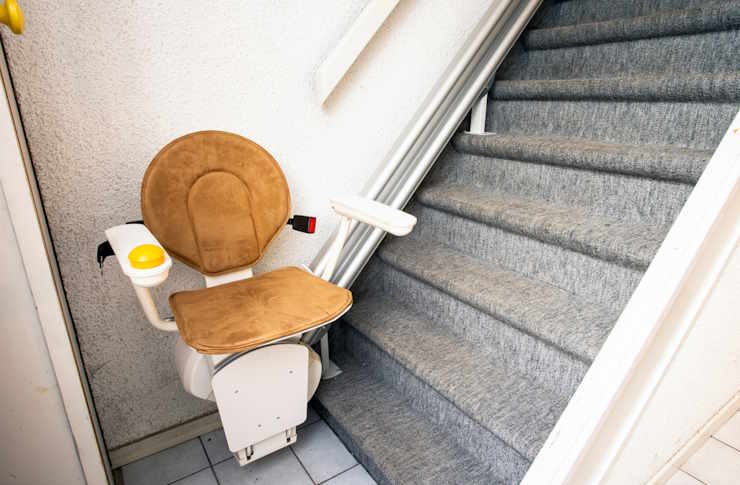Senior Apartments: What to Know Before You Move
Looking into senior apartments means considering more than square footage or amenities. It’s often about preparing for the next stage of life with greater ease and support. These living spaces are tailored to meet age-specific needs, from reduced maintenance to accessible layouts. Understanding how senior apartments differ from standard housing can help you or your loved ones make a move with confidence and clarity. Planning ahead brings peace of mind when it matters most.

What exactly are senior apartments?
Senior apartments are residential communities specifically designed for older adults, typically those aged 55 and above. Unlike standard rental units, these apartments cater to the unique needs of seniors, offering features such as wider doorways, grab bars in bathrooms, and emergency call systems. The key distinction is that senior apartments focus on independent living while providing age-appropriate amenities and services that can make daily life easier and more enjoyable for older residents.
How do senior apartments differ from other retirement housing options?
While senior apartments fall under the broader category of retirement housing, they differ from other options like assisted living facilities or nursing homes. Senior apartments are intended for individuals who can live independently but desire a community of peers and age-specific amenities. Unlike assisted living, which provides personal care services, or nursing homes that offer round-the-clock medical care, senior apartments emphasize independence with the option for additional support if needed.
What amenities can you expect in senior apartments?
Senior apartments often come with a range of amenities designed to enhance residents’ lifestyles. Common features include:
-
Fitness centers with senior-friendly equipment
-
Community rooms for social gatherings and events
-
On-site laundry facilities or in-unit washers and dryers
-
Transportation services for shopping and medical appointments
-
Landscaped outdoor areas with walking paths
-
Security features such as gated entries and 24-hour surveillance
Some upscale senior apartment communities may also offer additional luxuries like swimming pools, golf courses, or on-site restaurants.
Are there age restrictions for senior apartments?
Yes, senior apartments typically have age restrictions in place. Most communities require at least one resident to be 55 years or older, while some may set the minimum age at 62. These age restrictions are legally permissible under the Housing for Older Persons Act (HOPA) and are designed to create a community of like-minded individuals in similar life stages. It’s important to check the specific age requirements of each community, as they can vary.
What are the financial considerations when choosing senior apartments?
When considering senior apartments, it’s crucial to understand the financial implications. Costs can vary widely depending on location, amenities, and the level of services provided. Here’s a general overview of what to expect:
-
Monthly rent: This is typically higher than standard apartments due to specialized amenities and services.
-
Utilities: Some communities include utilities in the rent, while others charge separately.
-
Community fees: There may be additional fees for maintenance, activities, or other services.
-
Meal plans: Optional in most senior apartments, but available at an extra cost.
-
Transportation fees: Some communities charge for transportation services.
It’s important to carefully review the lease agreement and understand all associated costs before making a decision.
| Community Type | Average Monthly Cost | Typical Amenities Included |
|---|---|---|
| Basic Senior Apartment | $1,500 - $3,500 | Community room, laundry facilities, basic maintenance |
| Mid-Range Senior Apartment | $3,500 - $5,500 | Fitness center, scheduled activities, transportation services |
| Luxury Senior Apartment | $5,500+ | Multiple dining options, concierge services, high-end amenities |
Prices, rates, or cost estimates mentioned in this article are based on the latest available information but may change over time. Independent research is advised before making financial decisions.
How do you choose the right senior apartment community?
Selecting the right senior apartment community involves careful consideration of various factors:
-
Location: Consider proximity to family, healthcare facilities, and favorite activities.
-
Budget: Ensure the community fits within your financial means, considering both current and future expenses.
-
Amenities: Look for features that align with your lifestyle and interests.
-
Social atmosphere: Visit the community to get a feel for the social environment and available activities.
-
Rules and regulations: Understand the community’s policies on guests, pets, and personal modifications to your living space.
-
Future needs: Consider whether the community can accommodate potential changes in your care needs over time.
Take the time to tour multiple communities, talk to current residents, and ask plenty of questions before making your decision. Remember, choosing a senior apartment is not just about finding a new home; it’s about selecting a community that will support and enhance your lifestyle in your later years.




